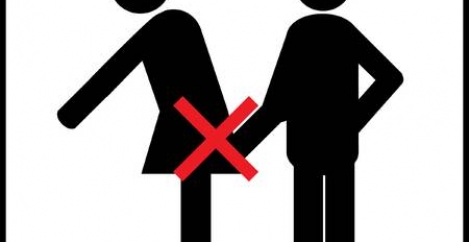November 23, 2018
Just a quarter of workers think #MeToo has permeated workplace culture
 One year on from #MeToo – just one in four workers agree that international media coverage has helped to improve their workplace culture, according to new research on sexual harassment from Acas. The workplace experts commissioned the study from YouGov to find out whether media reporting on #MeToo and high-profile celebrity cases have had any effect on British workplaces. Only a third (30 percent) of survey respondents believe that incidents of sexual harassment in workplaces have decreased in the last five years. The same percentage (30 percent) think that they have stayed about the same, and about a tenth (12 percent) think that they have increased. And despite #MeToo, #TimesUp and #WhyIDidntReport, only 24 percent agree that the international media coverage has helped to improve their workplace culture. Most worryingly, only 36 percent of workers said that they would be “very likely” to report incidents of sexual harassment if they witnessed them in their workplace, with a further 33 percent stating that they would be “fairly likely” to.
One year on from #MeToo – just one in four workers agree that international media coverage has helped to improve their workplace culture, according to new research on sexual harassment from Acas. The workplace experts commissioned the study from YouGov to find out whether media reporting on #MeToo and high-profile celebrity cases have had any effect on British workplaces. Only a third (30 percent) of survey respondents believe that incidents of sexual harassment in workplaces have decreased in the last five years. The same percentage (30 percent) think that they have stayed about the same, and about a tenth (12 percent) think that they have increased. And despite #MeToo, #TimesUp and #WhyIDidntReport, only 24 percent agree that the international media coverage has helped to improve their workplace culture. Most worryingly, only 36 percent of workers said that they would be “very likely” to report incidents of sexual harassment if they witnessed them in their workplace, with a further 33 percent stating that they would be “fairly likely” to.
The figures rise to 38 percent and 28 percent for incidents if they personally experienced them. And this culture of silence may be more deep-rooted for men, with fewer declaring they would be “very likely” to report incidents they personally experienced (32 percent for men and 44 percent for women).
Acas Head of Diversity, Julie Dennis, said: “It has been one year since the #MeToo movement gained widespread publicity but our poll reveals that there’s still a long way to go to change British workplace cultures.
“Our study also reveals that many workers feel their employers are doing enough but then there’s a big question around why so few of them are likely to report serious incidents to their line manager.
“Businesses need to ensure that workplace environments are safe and welcoming places so that any type of sexual harassment behaviour never sees the light of day. But if it does happen then staff should feel confident to report this type of abuse.”
More encouragingly, the poll found that four in ten workers (38 percent) said that they would be “very likely” to report sexual harassment if they personally experienced it in their workplace; six out of ten (58 percent) workers believe that their current employer is doing about the right amount to reduce sexual harassment in their workplace; and 46 percent of workers believe that ‘making changes to the wider culture of the company’ would be effective in preventing sexual harassment.
The specific measures that the poll respondents identified, which would be effective in reducing sexual harassment at work included:
- Better training on the topic for all staff (60 percent);
- Updating existing policies and procedures for dealing with sexual harassment (44 percent)
- Creating new policies and procedures (38 percent); and
- Making changes to legal protections (35 percent).
The complete findings of the Acas policy paper Sexual harassment in the British workplace: We all know it’s wrong, so why is it so difficult to stop? are available here.













